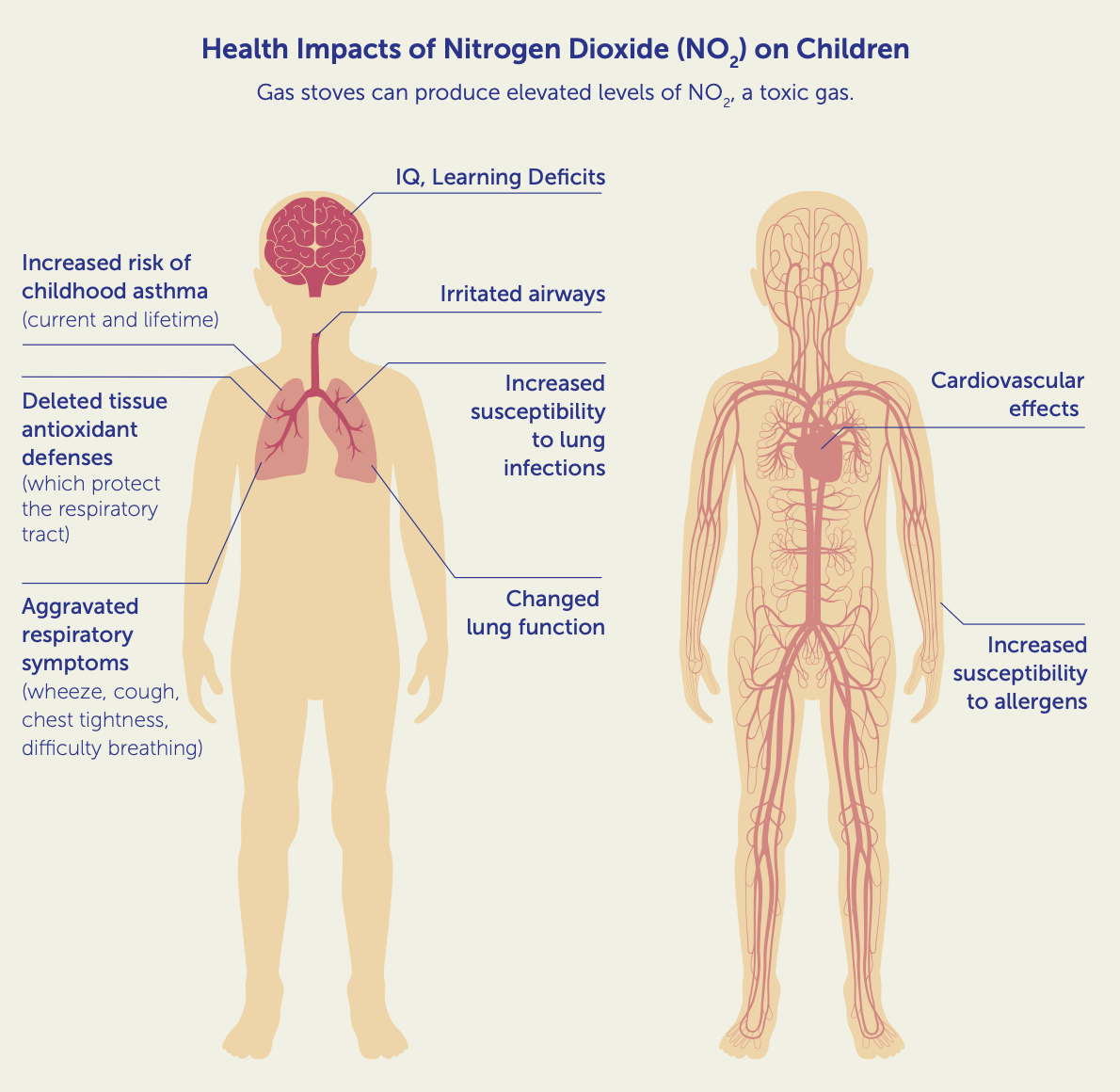You cook with gas? I have some good news that sounds like bad news
a cheat sheet on why experts are telling us to get rid of our gas stove
Dearest Everyone Who Has a Gas Stove in Their Home,
I’ve been wanting to break this to you for a while, but, well, the ducks (the science, the political will, industry) weren’t quite lined up. They are now! Woot!
Gas cooking is making our kids sick, it is a climate disaster and it’s on a trajectory to being outlawed. True! Plus, the world’s top chefs are switching away from gas…
Gas is no longer the “natural”, sexy option. It’s all about electric now!
And so…We need to make the big switch to electric. And fast. Which means swapping out our:
gas stove for electric induction
gas heaters for reverse-cycle air conditioners
gas water heaters for heat pumps.
I know, I know, it’s annoying and worrying to learn this. You’ve just moved into a place that has a gas stove and gas heating! You thought it was natural and clean! You’d also been told it’s the best/safest cooking option! You rent…what are you meant to do now?!
I told my friend Emma what I’m about to tell you. She was about to press “go” on her new kitchen renovation, replete with six-burner. She lives in Canberra. When she dug further herself, she learned that the ACT plans to end all gas connections to new builds — including in older suburbs — as of January 1, with gas turned off completely by 2045. “Why hasn’t anyone told us?” she cried. Well, the issue has been simmering for a while. I first wrote about it in 2013. But - don’t beat yourself up! - mainstream media and everyday conversation is only just picking up on it now. Plus, for the past decade we’ve had a Federal Government that has been just a bit wedded to methane; who can forget the “gas-led recovery” out of Covid?
First take-home off the rank:
If you’re about to renovate or build, do not install gas or buy gas appliances. None! Go fully electric, otherwise your investment may become redundant and you’ll be paying way more in energy bills than if you switched to induction.
OK, so about how about we cut straight to the stuff you need to know about as to why gas is now so bad that experts are telling us to run a mile from it. And to what to do if you have gas in your home… sprinkled with some pictures of awesome chefs who are making the switch because, well, they’ve realised induction is best!

There are a number of big campaigns launching to educate us all on the details, following recent science reports and expert advice. I’m going to be working with one or two of these not-for-profit projects over coming months. And, full disclosure: I am going to be paid for my time by Global Cooksafe Coalition, a partnership between the world’s top chefs, doctors, climate scientists and real estate developers (Lend Lease and GPT) who have all joined forces to push back against the gas industry's tricky “natural gas” marketing, with the aim of removing gas from kitchens worldwide.
Can I recommend you share this post far and wide. Here is a little actionable button to make it easy:
1. The Big Frightening Factlet: gas stoves are making our kids sick
So we now know gas stoves (and heaters) leak toxic gases, such as nitrous oxide (NO2), methane and carbon monoxide. Indeed, homes with gas stoves contain 50 to 400 percent higher concentrations of NO2 than those with electric stoves. But even in really low concentrations, the toxic gas can trigger a host of respiratory problems, particularly in kids whose lungs are smaller.
Now, are you ready for this? Children living in homes with gas stoves are 42% more likely to have asthma and in Australia cooking with gas is responsible for up to 12% of the burden of childhood asthma (even though only 37% of Australians have gas in their homes).
Fact to know:
A kid living with gas cooking in the home faces a comparable risk of asthma to a child living with household cigarette smoke.
When I have shared this with people in the past few weeks they’ve been stunned. You might be too.
But! Don’t berate yourself!
We were all told gas is “natural”, that it’s the “clean” option. These messages, however, were not based on fact, but were a concerted campaign funded by the fossil fuel (FF) companies (which I’ll cover in more detail soon). It all reminds me of the work I did with exposing the “sugar is natural” and low-fat myths.
Same ploy; slightly different vested players; same mindset required from all of us to combat the problem. Which is to say that once we know the truth we make different choices.
2. Gas stoves + heaters leak even when they’re off
Studies now show gas cooking releases a plume of highly toxic air pollutants into houses even when not being used! More than three quarters of methane emissions from stovetops, for instance, leak into the home while idle.
Further ghastliness:
A recent peer-reviewed study found that long-term exposure to elevated NO2 was correlated with a higher risk of death from Covid-19.
A Harvard study shows that gas appliances leak 21 different hazardous air pollutants such as benzene, hexane, and toluene, which increase risk for cancer, and other illnesses.
NO2 contributes to the development and exacerbation of chronic obstructive pulmonary disease.
And also bear in mind that if you live near a gas extraction plant, things are even worse. Researchers in the US have shown that children living around sites of gas extraction have a higher incidence of leukemia, and pronounced impacts on fetal and infant health have been reported in multiple studies.

3. Gas is the worst choice for the climate.
The FF industry has done a superb job of making us think that gas cooking and heating is a better, cleaner way to go about things. We’ve all bought into it. I did for years. In Australia, the former coalition government pushed the same message.
But for now know this much:
Natural gas = methane, which is 80 times more potent than carbon dioxide in the short term.
Commercial and residential buildings account for about 13% of heat-trapping emissions, mainly from the use of gas appliances.
Leaking methane from natural gas-burning stove tops in the US alone (where less homes have gas than Australian homes) is releasing the greenhouse-gas equivalent of 500,000 cars. Half a million cars! Just from the leaks!
And, of course, there’s this:
The International Energy Agency (the body actually representing the energy industry) warned world leaders that to achieve net zero and have any chance of keeping warming within 1.5C, no new gas, coal or oil developments can go ahead. None.
4. Gas is going, going, gone…don’t be caught out!
As above, the ACT here in Australia is banning gas connections in new builds and the stuff will outlawed completely by 2045, according to their latest plans. Victoria is also introducing incentives for households to shift to electric appliances. Dozens of U.S. cities have adopted or are considering similar regulations.

The writing is on the wall. Frankly, you’d be mad to connect gas to your home or buy gas stoves or heaters going forward.
It’s not the future!
5. Switching to electric saves you up to $1,900 a year, report says
Gas, you might have noticed, is getting well expensive as a result of the war in Ukraine and other factors.
But! Good News! The Climate Council has just completed a big report showing switching out gas-fuelled home appliances saves up to $1,900 a year in energy bills. Gas is less efficient and more expensive to run than modern electric equivalents. Reverse cycle air conditioners cost about half as much to run as gas or ducted gas heaters.
And so here’s a fun fact:
The cost of buying new electric appliances like induction stoves can be recouped in as little as five years, the Climate Council says.
So what do we all do now? Panic? No…
Thankfully, this is not an impassable nor impossible problem. There are all kinds of things we can action, now we know the deal. Yeah?
1. No need to rip out your stove, yet.
That would be a waste. But if you’re updating or renovating, then switch to fully electric (and have it pay for itself in a handful of years!).
2. In the meantime, there are great things you can do to stay safe…
Honestly, there is no need to freak. If you have gas appliances in your home and you rent or you’re not in a position to make big changes to your home right now, here’s a bunch of things to enact now. I’m a renter and my stove is gas…. and below is what I now do:
Open your windows while you cook.
Use your exhaust fans that move the air to the outdoors.
Use an electric kettle instead of boiling water on the gas cooktop.
Cook with an electric slow cooker, pressure cooker, rice cooker, toaster oven, or microwave.
You can also buy portable induction cooktops for $100-$200.
If you have air-con (I don’t), use it as a space heater in winter.
Got questions? Outraged? Think we should do more?
I don’t want to overwhelm anyone here; I’ve kept this cheat sheet topline. I’m aware there are a bunch of questions that might froth forth for you:
But isn’t the electric grid also dirty?
What can I do if my kid has asthma and I can’t rip out my gas stove “yet”?
What’s a heat pump and how do I get one?
How can we make a difference “up river” at the political level to get more states and territories to follow the ACT’s lead?

Post your questions below and I’ll either answer in the comments or do a follow up post.
I was thinking that if you all felt it was warranted/needed in your communities/might be fun, we could work together to get this message out far and wide…beat the gas industry at its own game! I kind of feel we need to turn this into a bit of a campaign. Thoughts? Keen?
Sarah xx





Thank you Sarah. This is timely as we are looking at replacing our ageing gas cooktop for all the reasons you talked about. We are in the process of getting quotes for cabling and switchboard upgrade and it is working out to be much more expensive than I anticipated (more than the cooktop itself. I hadn't done much research I must say). I was super excited to have gas cooking when I moved into our home 12 years ago. Needless to say the excitement has long gone...both my kids have suffered from asthma when they were little and I had no idea gas cooking could be responsible until a few years ago.
Gosh, I didn't know. Some knowledge is powerful isn't it versus ignorance.
LPG is safer and better for environment because it's propane and non-toxic? Methane is the problem one in natural gas that is piped into homes.
Thank you so much for sharing this information, Sarah. It's such a blessing for us all.